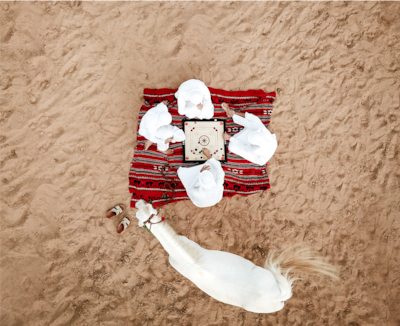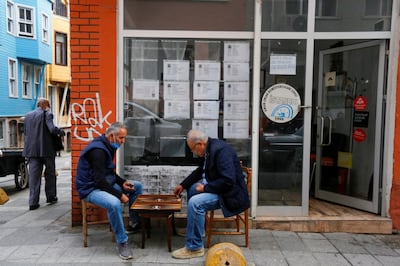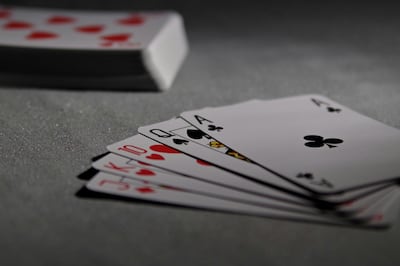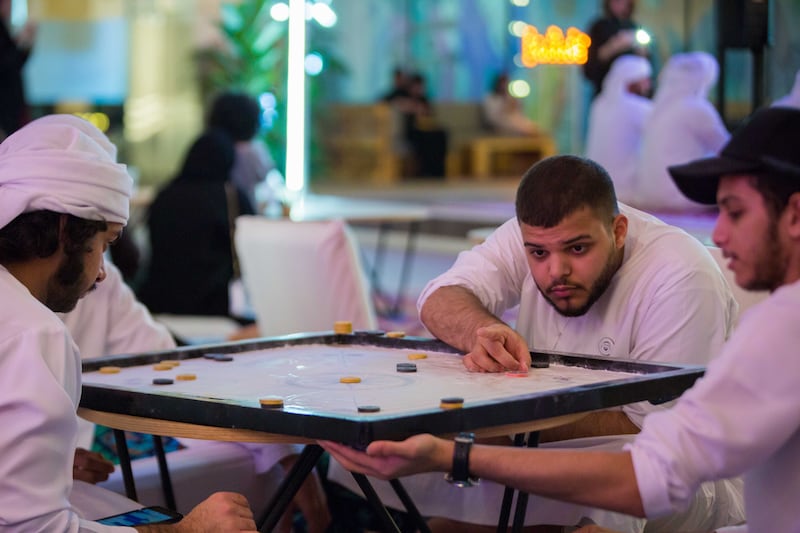Get-togethers with family and friends are a welcome occurrence during Ramadan.
Often after taraweeh prayers are concluded, loved ones come together to watch television, eat desserts and relax at the end of a day spent fasting and praying.
Between the eating and unwinding, playing tabletop games is likewise a well-loved activity during the evening. Traditional card and board games designed for group play are favoured, with their familiarity making it easy for everyone to join in.
Here's a selection of the most popular and how they can be played.
Carrom

Most households in the Gulf will be familiar with carrom, or "kairam" as it is called in the region. It is played and enjoyed by all generations.
Originating in India, the game became popular there after the First World War. Through trade in the gulf and many Indian workers travelling there, the game became popular for its accessibility and the simplicity of its components. The Indian diaspora in the UK and Australia also contributed to introducing carrom to other parts of the world. The first tournaments are said to have taken place in Sri Lanka in 1935.
The premise is simple, making it easy to catch on and join in. Comprised of a square board with border walls and four corner pockets, the purpose of the game is to use a small plastic puck (called a striker) to pocket smaller wooden pucks.
The pucks are in different colours and represent different values, resembling the rules of billiards.
Many who have played carrom will be familiar with the use of talc powder to make the board smoother, allowing the pucks to slide more easily across the surface.
Walk into any majlis in the UAE during Ramadan and you’re sure to find a carrom board and at least one person who’s ready to play.
Backgammon

The famous board game is known the world over and has its roots in 17th-century England.
Often called "tawlah", the Arabic word for table, backgammon is a two-person game played on a board that has two sets of bordered rectangles. Within the spaces are embossed or drawn elongated triangles in which the players place their pieces.
The game is called checkers in some parts of the world but has different rules to the version that is played on a chess board. Backgammon is a contrary movement game with every player having fifteen pieces to play with.
The game can mostly be found in traditional cafes in the Levant and Egypt, usually played by older generations while they drink tea while besting one another.
Card games

There are numerous card games played in the Middle East, but the most popular are "hand" and "spades".
Both require multiple players, usually four, and can be played as individuals or in two teams. Games can go on for hours, filling up an evening with competitive fun.
The rules differ, but both games involve gaining points from gathering matching suits that trump the other players' or team’s tally. Spades is also popular in the US, but has different variations on the rules adhered to in the Middle East.
Spades and hand are played by young adults mostly in the Gulf, with some countries organising tournaments in Ramadan with different prizes offered.
Games can get quite feisty as players get closer to winning. Other popular card games include tarneeb, which is played in the Levant, and baloot, a popular game in Saudi Arabia.
Dama
Sometimes called Turkish draughts, dama is a tabletop game using pieces much like chess. The game is very popular among older generations in Kuwait, Jordan and Lebanon.
The game is played on an eight-by-eight board with the shape of the pieces varying from country to country. Some use small stones similar to the ones in the Chinese game Go, while others have pieces that resemble a little half dome.
According to stories passed on through generations, it is said that dama came to the region through sailors who travelled to Europe for trade and learnt the game there before coming back.
Dama tournaments are very popular in Kuwait and are organised every Ramadan.







